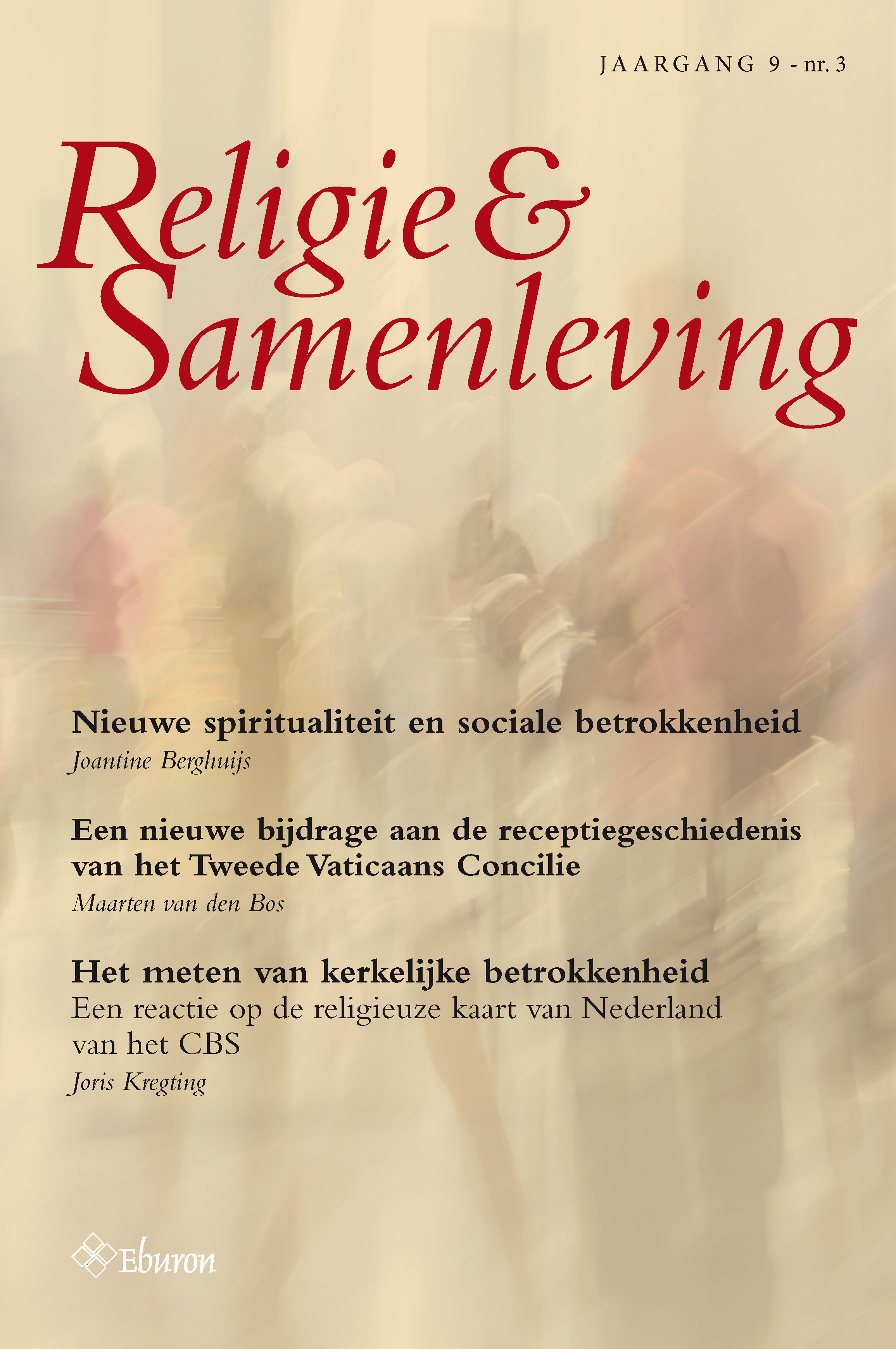Nieuwe spiritualiteit en sociale betrokkenheid
DOI:
https://doi.org/10.54195/RS.12559Samenvatting
New spirituality has often been criticized as being egocentric and lacking incentives for social engagement. Critical authors are vague and/or differ in specifying who they are writing about and what the criticism is. Empirical studies are scarce. After seeking an adequate demarcation of the target group (people involved in new spirituality), a concept of social engagement is established that distinguishes between behavior that is and that is not driven by egocentric motivation. A representative sample of the Dutch population has been surveyed using a questionnaire based on this conceptual model. On most measures people involved in new spirituality are less socially engaged than affiliated or traditionally religious people but more engaged than ‘secular’ people. However, they are more committed to organizations for environmental protection, peace, or animal rights than the other groups. Overall, demographic factors – especially education, age, and gender – are stronger predictors of social engagement than religious and spiritual beliefs, experiences, or practices.




